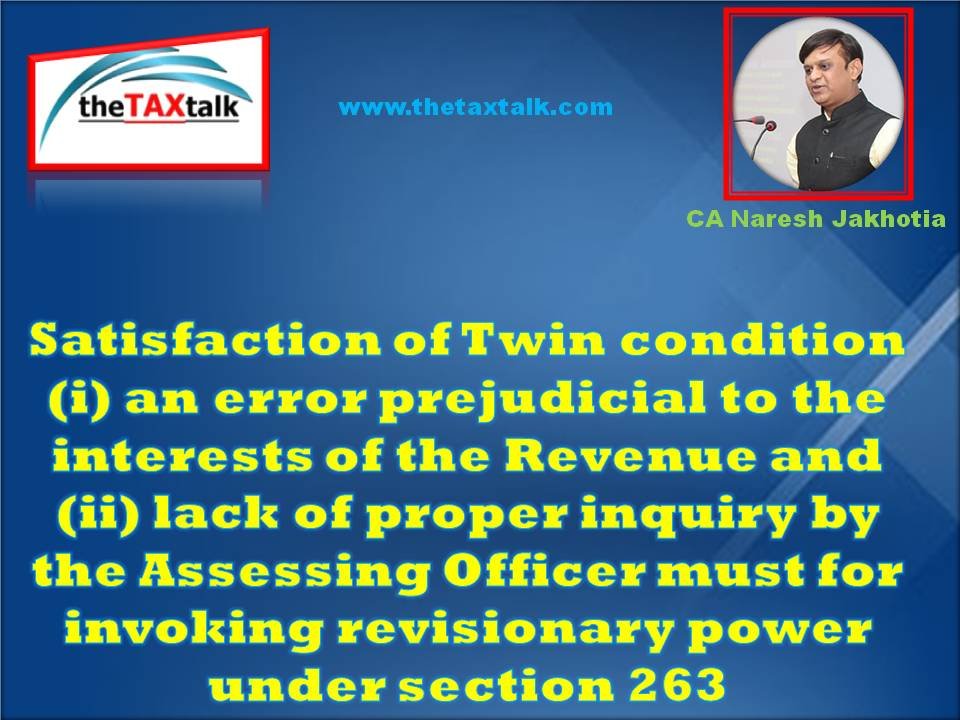![]()
Satisfaction of Twin condition (i) an error prejudicial to the interests of the Revenue and (ii) lack of proper inquiry by the Assessing Officer must for invoking revisionary power under section 263
In a recent decision, the Hon’ble Delhi Bench of Income Tax Appellate Tribunal (ITAT), has quashed the revisionary order passed by the Pr. CIT under Section 263 of the Income Tax Act, 1961.
The Hon’ble Tribunal, while adjudicating upon the matter, placed strong reliance on the principles laid down in CIT vs. Shreeji Prints (P) Ltd. (2021) [SC], CIT vs. Gabriel India Ltd. (1993) [Bombay HC], PCIT vs. Clix Finance India (2024) [Delhi HC], and PCIT vs. NYA International (2025) [SC].
The ITAT meticulously examined the scope and applicability of Section 263, emphasizing that an order under Section 263 cannot be sustained unless the twin conditions-(i) an error prejudicial to the interests of the Revenue, and (ii) lack of proper inquiry by the Assessing Officer (AO)-are concurrently satisfied.
The Tribunal held that the AO had conducted a detailed inquiry, and the PCIT’s assertion regarding inadequate verification was without merit and unsubstantiated by any cogent reasoning. It was categorically observed that the assessment order was a product of reasoned deliberation and due consideration, and not an outcome of non-application of mind. Consequently, the invocation of revisionary jurisdiction under Section 263 was deemed to be unwarranted and legally unsustainable.
Accordingly, the Hon’ble ITAT quashed the 263 order and allowed the assessee’s appeal in its entirety, reinforcing the settled legal position that mere difference in opinion cannot be a ground for revision under Section 263 unless a substantive error causing prejudice to the Revenue is demonstrated.
This decision further solidifies the jurisprudence surrounding Section 263, ensuring that the revisionary powers of the PCIT are not exercised arbitrarily but remain within the strict confines of judicially recognized principles.
The Copy Of the order is as under:


